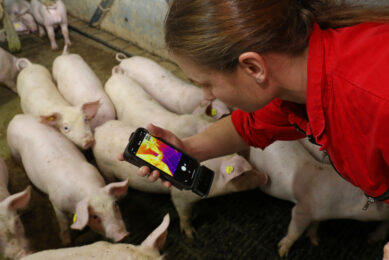German study: Ill pigs are often culled incorrectly

Ill or disabled sows and finishers on farms in Germany often suffer longer than is allowed by law. That was the outcome of a recent scientific study in Germany, about which German media have reported.
The German newspaper Neue Osnabrücker Zeitung recently reported about a confidential study by the University of Veterinary Medicine in Hanover, Germany. In personal correspondence with Pig Progress, lead author Prof Dr Elisabeth große Beilage confirmed that the data in this otherwise confidential report are correct.
Visits to pig rendering plants
The team of scientists visited various pig rendering plants in 4 states throughout the country to investigate the state of pig carcasses. Altogether, the plants received pigs that originally came from smaller and larger farms in 6 states in Germany.
In their study, the researcher found many signs of animal welfare violations with ill or injured animals as well as when animals will be euthanised. According to the newspaper, carcasses of 13.2% of the finisher pigs (out of 485) as well as 11.6% of the sows (out of 64) showed that they had suffered from ongoing substantial pains, which is contrary to German law. In addition, the animals had not only been culled too late, but also quite often in an incorrect way.
Underfed carcasses, ulcers, cannibalism
The research includes pictures, according to the newspaper, showing pictures of underfed carcasses, ulcers or cannibalism on e.g. tail and ears. The study examined 165 pig carcasses, which had clear signs of culling. In 61.8% of all cases, the professor found indications of incorrect methods applied. Often the pigs had been stunned, but the bleeding was omitted. One pig had even made it to the rendering plant alive due to stunning by use of a captive bolt placed incorrectly.

In her conclusion, the professor stated that traceability signs, like farm-specific ear tags, would be a solution to allow the authorities to report back to farms in case of any problems.
Intolerable situations
Christian Meyer, minister for Food, Agriculture, Consumer Protection and State Development in the state of Lower Saxony, responded to the situation, speaking of ‘intolerable situations’.
Ill animals need to be taken care of
ISN, the representative body for German pig producers, was taken aback by the study’s clarity. Managing director Dr Torsten Staack, ISN, stated on the organisation’s website: “No ifs and buts, there is no way to make the result of the study look better. Ill animals need to be taken care of and treated professionally – and, if necessary, to be culled on time and correctly.”
He continued to say: “Problems in the implementation should be removed very quickly, e.g. by broad and above all, practical training for both pig producers as well as vets. In addition, it is urgently necessary to further develop the emergency culling procedures in such a way that there is a significantly better feasibility of this already difficult process.”











